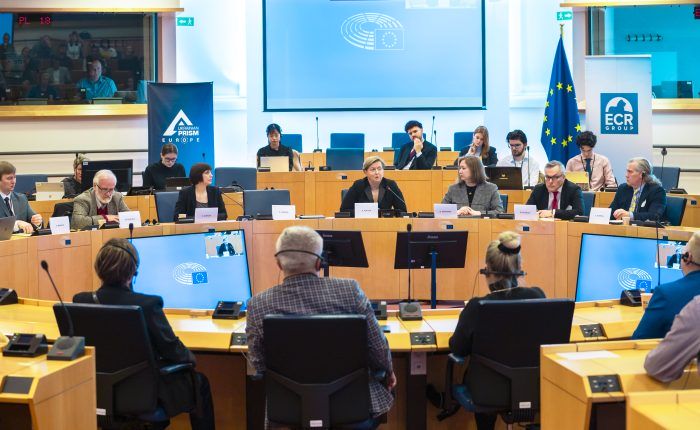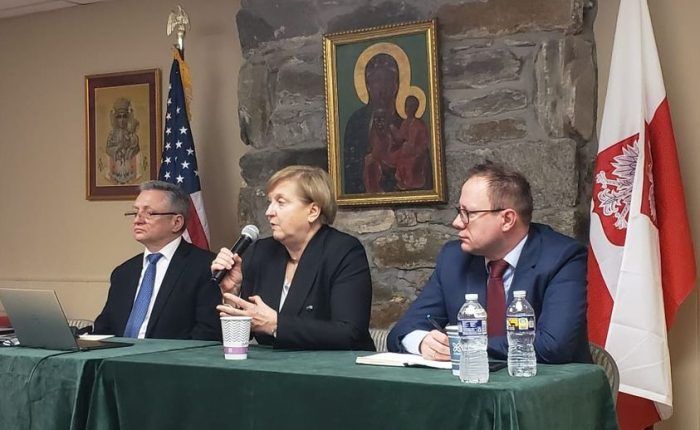 Zachęcamy do zapoznania się z artkułem Anny Fotygi na temat polityki kosmicznej opublikowanym w najnowszym wydaniu magazynu The Parliament.
Zachęcamy do zapoznania się z artkułem Anny Fotygi na temat polityki kosmicznej opublikowanym w najnowszym wydaniu magazynu The Parliament.
The first steps mankind made in space were actually the result of the Cold War struggle between two totally different powers. For a long time space was one of the many areas of competition between them. Although the situation is different today and countries from all over the World participate in the race to the stars in order to pursue technological advances, we are also aware of the rapidly changing international environment, we face new challenges to common security.
The EU as such is a fairly new player in this space race. Only after the coming into force of the Lisbon Treaty was it possible to start a meaningful EU policy in this area. As other players have been there for quite some time, the EU has to build on the experience gained by some of its Member States.
There is a lot to gain – the EC space programme can help to modernize not only space-based technologies, some experts also indicate the possibility to enhance the overall reindustrialization of Europe. Galileo was expected to successfully compete with the American GPS. It did not fulfill our expectations. Together with Copernicus Earth surveillance, they are the first and so far only major Infrastructure projects managed by the European Commission. Massive investments in scientific research and the space programme in the range up to 17 and 20 billion euros, respectively, are expected to create spin-off effects in other sectors, become a driver of innovation and help European industry regain a leading role on the global stage.
While the origins of space exploration were strictly connected to military goals and uses, they have quickly proven their worth for civilian purposes. Despite the different geopolitical situation existing nowadays and greater focus on the latter, the space race is still very important for military reasons. This has been discussed in one of the SEDE meetings, and one of the conclusions which arose was that while the EU cannot directly invest in military areas, there are numerous other fields that can benefit from greater European engagement in this field. Until recently the main goal of the European space programme – which was to gain technological independence from our long – time strategic partner, the USA, and be able to develop our own satellite navigation capabilities. Paradoxically, this has pushed Europe into the arms of Russia, whose credibility leaves much to wish for, but which had the means to deliver EU satellites into orbit. Yet subsequent failed launches due to flaws in Russian rockets have proven that this cooperation is very costly for the EU and brings very little in terms of tangible results. For instance, in May 2014, Express AM4R, worth $275m, Europe’s most powerful communication satellite was lost because the Russian Proton-M rocket exploded.
This shows that the EU has to wisely choose its partners, not only not to waste EU taxpayer’s money, but also not to lose credibility as an important actor in competition in space. EU actions in this field should also be coherent with general policies and principles applied in other areas, which under current circumstances would put closer cooperation with Russia under question.
The examples given above clearly show that the space programme is a tool of both internal and external EU policies. Pursued wisely, it will bring benefits both for the position of the EU on the international stage, as well as for industrial and scientific development of its Member States. The vision of technological independence should not, however, weaken relations with the United States and make Europe dependent on a country, which has proven – and is still proving – to be very unreliable.
Anna Fotyga
Chair of the Subcommittee on Security and Defence



